QuestionI have a 6 year old male dauchshund, he is a standard size.
We recently got a new puppy. He is now a 3 month old mini dauchshund. At first, the older dog allowed the puppy to nip at him but kept away when possible.
It has been a little over a month, since the dogs have been together. Now, the older dog does not go near the younger dog and he has his tail completely down when walking around the house. I looked up what it means for a dog to have his tail down and it all points to either depression or fearfulness.
I really do not want to give away the puppy but if the older dog continues to have his tail and his confidence down. There seems to be no other choice.
Both dogs are not neutered.
Do you think getting them fixed will appease this situation?
Is there anyway we can fix this problem?
How can we make the dogs get along better?
AnswerYour older Doxie is definitely exhibiting fear and a very submissive posture. It's likely he was not socialized to other dogs, but even an adult dog who has interacted with other dogs throughout its lifetime can react badly to the presence of a puppy. There's really no need to give up the puppy; what you need to do is learn about dog body language (so you can read both dogs) and positive reinforcement (so you can reward the older dog when he is not fearful and reinforce the puppy's subdominant posture around the older dog.)
One thing YOU MUST do is socialize this puppy, and that means taking the puppy out every day and introducing him to all sorts of people, different environments, other dogs, etc. You should also enroll him in a puppy kindergarten (so he can develop appropriate behaviors around other dogs, thereby helping your older dog); be absolutely CERTAIN that the training facility is run by ONLY an experienced POSITIVE REINFORCEMENT TRAINER and that ONLY puppies in the SAME developmental stage as your puppy are allowed to interact. Go observe a class or two before deciding to enroll, ask for REFERENCES and CHECK THEM. Your puppy will develop more sophisticated skills (up to normal levels) of interaction with other puppies and the trainer will no doubt be able to assist you in habituating your two dogs to one another.
Meanwhile, here's a reading list (homework you must do):
Turid Rugaas, "On Talking Terms with Dogs: Calming Signals"
"If Your Dog Could Talk", Bruce Fogel
"Think Dog" John Fisher
and Paul Owens' book on positive reinforcement training, "The Dog Whisperer".
You need to develop the skill to "read" both your dogs' body communication to one another (and to you) so you can reinforce signals of acceptance from your older dog and calming signals from your puppy. If you're using a clicker, introduce it to the older dog by MUFFLING the sound of the click (put it in a tissue in your pocket at first). THEN, once you've got an understanding of body language and positive reinforcement, you can click/treat every signal given by the older dog that indicates a calming signal or a body language that indicates he is becoming accepting of the puppy. Meanwhile, spend as much time with the older dog as you have in the past (separate from the puppy); reinforce the older dog's position in your home by greeting him first, feeding him first, letting him in/out first; allow the older dog to interact as he chooses with the puppy and do NOT allow the puppy to harass him (put the puppy on long lightweight indoor leash if you must), and do not allow the puppy the same household privileges as the older dog (run of the house, sleeping in bedrooms, etc.) You may inadvertently have given the older dog a signal of lower rank by giving the puppy more attention (this is understandable, don't beat yourself up.)
If you feel incapable of doing this alone, find a certified applied animal behaviorist. This site supposedly checks educational and professional references both in the US and abroad:
http://www.iaabc.org/
This is not difficult. Do not project human emotions onto your dogs. There's no need for a puppy to lose a good home in this situation as there is no aggression present. THINK DOG (or learn to) and you may see this from an entirely new perspective.

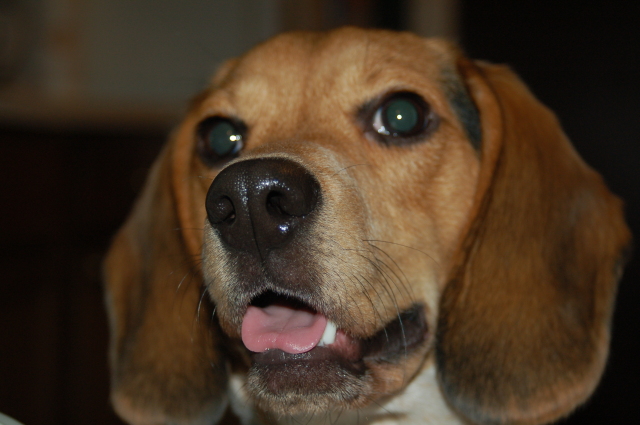 uncontrollable beagle
Question
max
My beagle is a year and a half. Ive had hi
uncontrollable beagle
Question
max
My beagle is a year and a half. Ive had hi
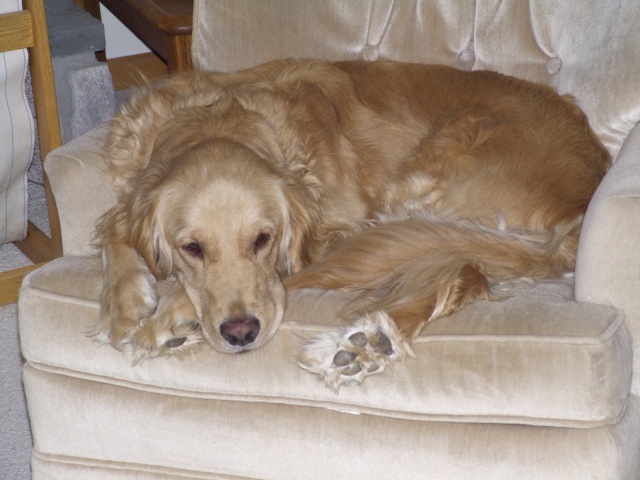 aggression in aging dog
Question
Niko
I have a thirteen year old, female, Samoy
aggression in aging dog
Question
Niko
I have a thirteen year old, female, Samoy
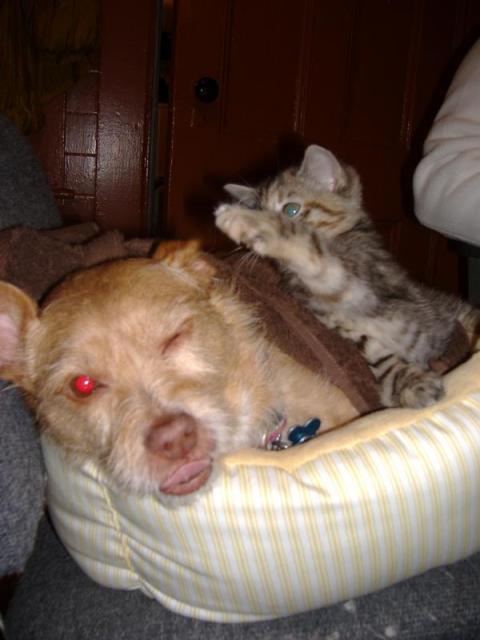 My dog is shaking and hiding under my bed recently
QuestionRorrie and Pencil
QUESTION: My dog, Rorr
My dog is shaking and hiding under my bed recently
QuestionRorrie and Pencil
QUESTION: My dog, Rorr
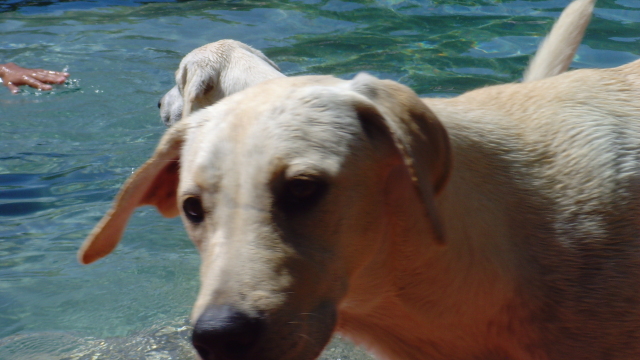 Psychological trauma
Question
Izzy
I recently took my 1 year old dog to a fr
Psychological trauma
Question
Izzy
I recently took my 1 year old dog to a fr
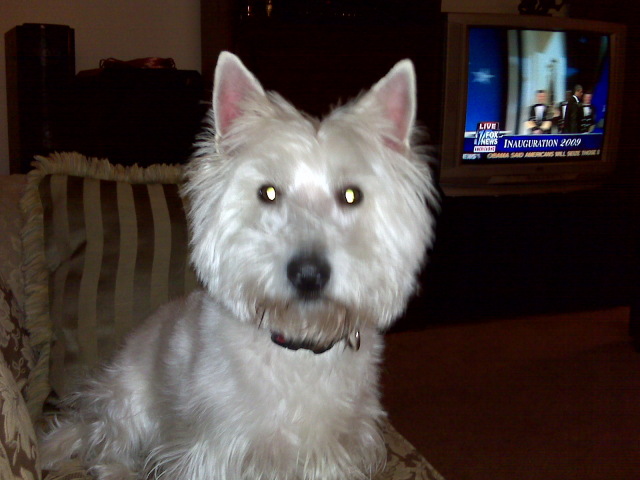 Companion for Lonley Westie
Question
Shannon
We have a 5-year-old neutered Westie w
Companion for Lonley Westie
Question
Shannon
We have a 5-year-old neutered Westie w